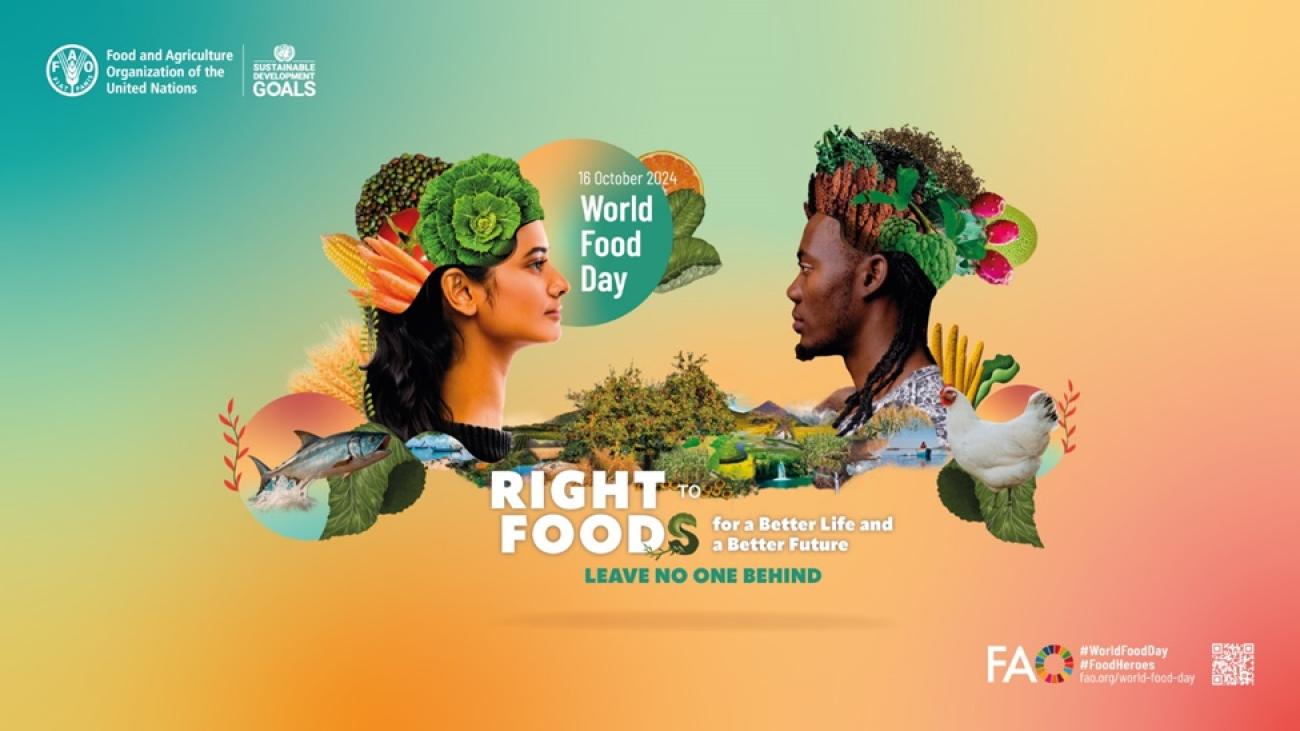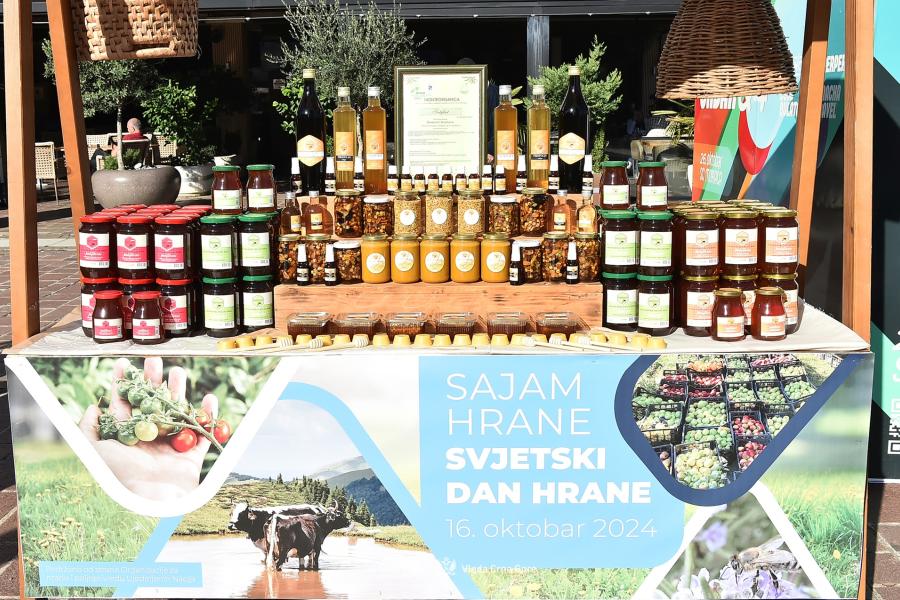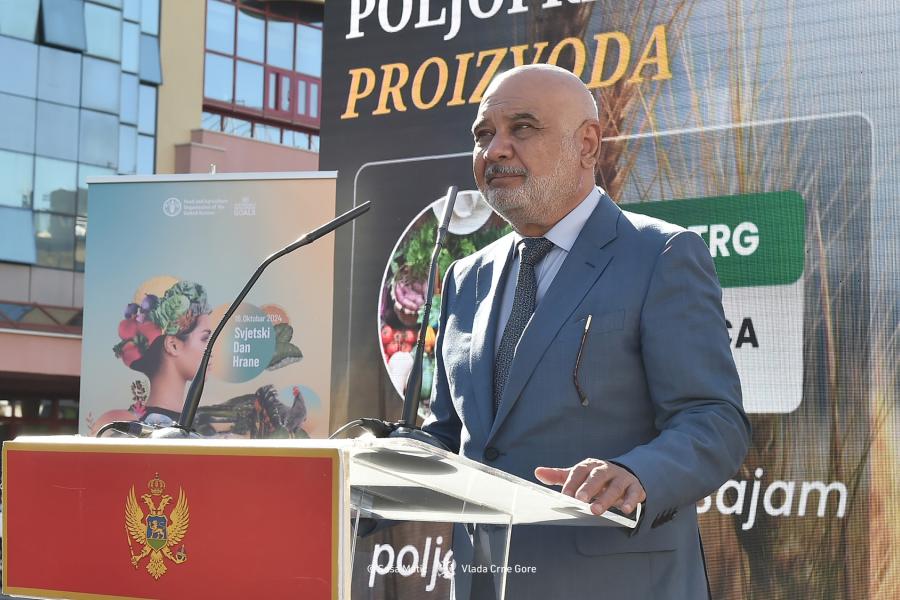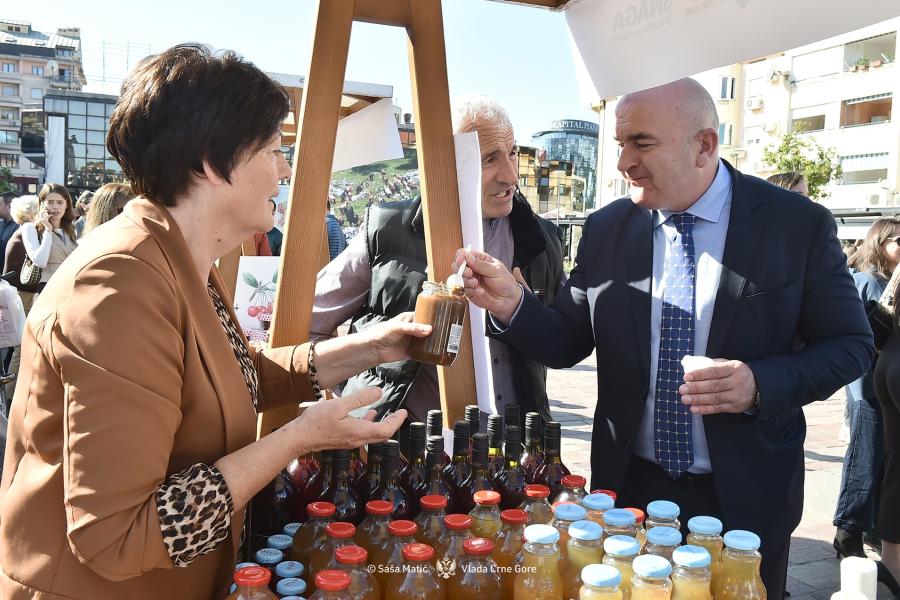Tick-tock, Lets beat the Clock. 16 October – Celebrating World Food Day in Montenegro: Urgent call to advance right to foods

Smallholders and family farmers are the backbone of food production and ensure the persistence of traditional food cultures.
Collective action across over 150 countries worldwide is what makes World Food Day one of the most celebrated days in the UN calendar. World Food Day is led by the Food and Agriculture Organization of the United Nations (FAO), and takes place annually on 16 October, which is the anniversary of the founding of FAO. Each year a special theme for World Food Day promotes a particular aspect of the need to raise awareness of hunger and act for a better future with food security, with better lives for people, and the planet.
This year, the theme of World Food Day spotlights access to foods as a human right. The campaign raises awareness worldwide about the need for everyone to have access to a variety of nutritious, affordable, safe, and sustainable foods. We talk about “foods” in the plural because diversity is essential to proper nutrition, as well as food availability, accessibility and affordability for all.
Smallholders and family farmers are the backbone of food production and ensure the persistence of traditional food cultures. World Food Day is an ideal occasion to celebrate the hard and diligent daily work of farmers who help us keep Montenegro’s flavours alive by preserving centuries-old culinary traditions and attracting the agritourists to rural regions.
Even though the world’s farmers produce more than enough food to feed the global population, data in the latest Global Report on Food Crises shows more than 280 million people experienced high levels of acute food insecurity in 2023 – and many of the crises that caused hunger last year are still ongoing in 2024. The war in Ukraine and the aftermath of regional floods, droughts and earthquakes have disrupted food production and distribution. Additionally, where food supply is severely restricted, people may consume food that is unsafe, frequency of meals may be reduced, and portion sizes may be smaller.
The costs of a healthy diet are rising and are an increasing obstacle for people to maintain health and food security. Over 2.8 billion people cannot afford a healthy diet that supplies the necessary diversity of food and of micronutrients required for well-being. Those people who are unable to get the nutrients they need are more likely to get sick, face a higher risk of chronic illnesses or lack the stamina to lead an active lifestyle. The time is now for action to end food insecurity and malnutrition.

The Government of Montenegro recognizes and prioritizes the importance of the food security and adequate nutrition – this is reflected in the key strategic documents, namely the national Strategy of Agriculture and Rural Areas for 2023–2028. According to 2022 data from FAOStat, the statistical repository of FAO, Montenegro has a prevalence of 12.3 percent of low-to-moderate or severe food insecurity in its population, giving it the lowest rate in the Western Balkans. Another important food availability metric is the average dietary energy supply adequacy (ADESA) which measures the dietary energy supply in a country as a percentage of the average dietary energy requirement for the total population. That is, it measures the adequacy of food supply in terms of calories in the country. It discerns whether undernourishment is mainly due to an inadequate food supply or unequal distribution of food among the population. Again, FAOStat data shows that in Montenegro the three-year average ADESA score has increased from 141 to 145 between 2018–2020 and 2021–2023, which indicates adequate and improving food availability.
To commemorate World Food Day in Montenegro the Ministry of Agriculture, Forestry and Water Management of Montenegro, Podgorica municipality and Chamber of Commerce of Montenegro with the support of the FAO Office in Montenegro organized a Food Fair, which was attended by high-level representatives and partners from embassies, international organizations and national institutions, and that brought together more than 25 organic food and traditional food producers and vendors.

De facto Head of the FAO office in Montenegro and FAO Deputy Regional Representative for Europe and Central Asia, Nabil Gangi spoke at the Fair, saying “Today’s Food Fair aims to demonstrate the unique role which smallholders and family farmers play as the backbone to producing variety of foods while preserving traditional food cultures in Montenegro. As a follow-up to the “Summit for the Future” pledge, I would like to use the opportunity of celebrating this World Food Day with our friends and partners to renew the collective commitment to building efficient, inclusive, resilient, and sustainable agrifood systems that guarantee everyone’s right to nutritious foods. Together, we can get back on track to achieving the 2030 Agenda for Sustainable Development by transforming agrifood systems for better production, nutrition, environment, and life—leaving no one behind.”
The Minister of Agriculture, Forestry and Water Management of Montenegro, Vladimir Jokovic, also spoke. He recognized the larger importance of the country’s food heritage as a marker of national identity. “We decided to organize the food and agricultural products fair to focus on organic production, traditional production of agricultural products, as well as producers who are successful entrepreneurs today and who, thanks to IPARD support, can supply the Montenegrin market with agricultural products. The Government of Montenegro has a clear direction and commitment to join the European Union market. It is very important that we all participate in creating a recognizable Montenegro, as a country with a rich tradition in agricultural production, but also in creating the most favourable environment for the business of our agricultural producers while respecting European values."

Some of the fair’s attractions included traditional folklore dance and music performances, and a demonstration of food preparation with fresh local ingredients by a skilled local chef. For younger visitors, special animations and games were organized to help children learn about healthy food in a fun and interactive way.
The students and teachers of the Secondary Mixed School in Andrijevica and the Secondary Vocational School "Spasoje Raspopović" in Podgorica also celebrated World Food Day. Thematic discussions and lectures on the topics of the right and access to nutritious, diverse and safe food were organized, and other interactive activities included food preparation and creation of artwork. Fourth grade students at Andrijevica school understood the meaning of World Food Day and generated their own messages to promote the day.
"Hunger is not solved by words, but by actions!"
"To someone, a little can mean a lot, and as humans, we should always support one another."
"Young and old alike, let’s create a world without hunger together!"
"Let’s promote volunteer work and humanitarian projects to help one another and prevent hunger in our communities."
Their words capture the true spirit and call for action of World Food Day to be carried forward every day of the year.


